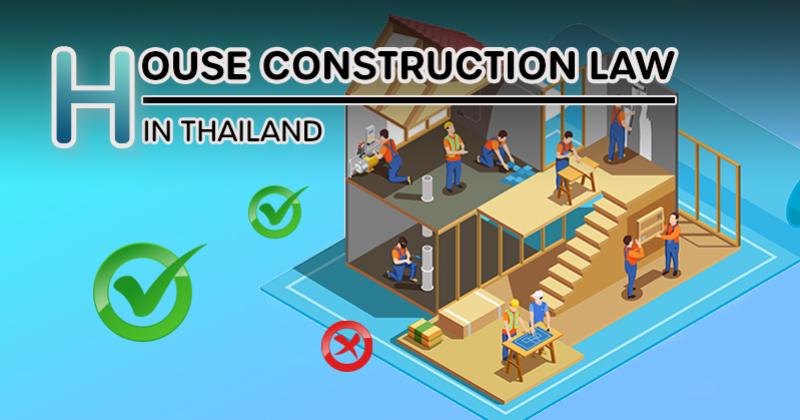
สร้างเมื่อ : 28 ธ.ค. 2566
แก้ไขล่าสุดเมื่อ : 28 ธ.ค. 2566
อสังหาริมทรัพย์คืออะไร 5 ประเภทอสังหาริมทรัพย์ ที่ควรรู้ก่อนลงทุน
อสังหาริมทรัพย์คืออะไร อสังหาริมทรัพย์หมายถึงอะไร เป็นคำถามชวนคิดสำหรับคนที่สนใจหรือเกี่ยวข้องกับอสังหาริมทรัพย์ รู้หรือไม่ว่า อสังหาริมทรัพย์คือเรื่องใกล้ตัวมากกว่าที่คุณคิด เพราะแน่นอนทุกคนต้องมีที่อยู่อาศัย ไม่ว่าจะเป็นบ้าน คอนโดมิเนียม ทาวน์เฮ้าส์ หรือ อพาร์ตเมนต์ เรามาทำความรู้จักเกี่ยวรับเรื่องนี้ให้มากขึ้นกันค่ะ
อสังหาริมทรัพย์คืออะไร
อสังหาริมทรัพย์คือ ที่ดิน สิ่งปลูกสร้าง เช่น อาคาร บ้านเรือน สำนักงาน โรงงานอุตสาหกรรม ไม้ยืนต้น รวมถึงสิ่งอื่นใดที่อยู่ติดกับที่ดินซึ่งเคลื่อนที่ไม่ได้ นอกจากนี้ทรัพย์ตามธรรมชาติที่ประกอบเป็นอันเดียวกับดิน เช่น แม่น้ำ บึง แร่ กรวด ทราย ที่อยู่ในอาณาบริเวณที่ดินนั้นก็จัดว่าเป็นอสังหาริมทรัพย์ด้วย
อสังหาริมทรัพย์หมายถึงสิทธิ์ที่เกี่ยวกับกรรมสิทธิ์ในที่ดินด้วย เช่น สิทธิครอบครองที่ดิน และสิทธิในการอยู่อาศัย ก็ถูกจัดเอาไว้ในหมวดหมู่นี้ อสังหาริมทรัพย์หมายถึงอะไร อสังหาริมทรัพย์คืออะไร อาจกล่าวได้แบบง่าย ๆ ว่า อสังหาริมทรัพย์คือ ทรัพย์สินที่ไม่สามารถเคลื่อนย้ายได้ หากเคลื่อนย้ายหรือทำลายได้ก็จะทำได้อย่างยากลำบากนั่นเอง
อสังหาริมทรัพย์คืออะไร และแตกต่างจากการลงทุนรูปแบบอื่นๆ อย่างไร
อสังหาริมทรัพย์ คือ ทรัพย์สินที่ไม่สามารถเคลื่อนย้าย หรือพกพาไปไหนมาไหนได้ หรือก็คือ ที่ดิน และสิ่งปลูกสร้างที่ทำการสร้างติดกับที่ดิน เช่น บ้าน อาคารสำนักงาน โรงงานอุตสาหกรรม โรงแรม หอพัก และคอนโดมิเนียม เป็นต้น ดังนั้น ก่อนการลงทุนอสังหาริมทรัพย์นักลงทุนจึงควรทำความเข้าใจถึงลักษณะเด่นของอสังหาริมทรัพย์ที่แตกต่างจากการลงทุนในรูปแบบอื่นอยู่หลายประการ ดังนี้
มูลค่าของอสังหาริมทรัพย์ขึ้นอยู่กับปัจจัยภายนอก กล่าวคือราคาของอสังหาริมทรัพย์จะขึ้นอยู่กับทำเลที่ตั้ง สภาพแวดล้อม และสภาวะเศรษฐกิจในขณะนั้นมากกว่าตัวทรัพย์สินเอง ถ้าหากเศรษฐกิจตกต่ำราคาอสังหาริมทรัพย์ก็จะลดลงตามไปด้วย
ใช้ระยะเวลานานในการเปลี่ยนแปลงเป็นเงินสด อสังหาริมทรัพย์เป็นสินทรัพย์ที่มีมูลค่าสูง ดังนั้น การเปลี่ยนแปลงเป็นเงินสดจึงจำเป็นต้องใช้ระยะเวลานาน และมีความเสี่ยงมากกว่า แต่สามารถลดความเสี่ยงได้โดยการปล่อยให้เช่า หรือทำธุรกิจส่วนตัวบนที่ดินนั้น เพื่อสร้างกระแสเงินสด
อสังหาริมทรัพย์มักจะราคาสูงขึ้นในระยะยาว เป็นไปได้ที่ในระยะสั้นราคาของอสังหาฯ อาจมีการปรับตัวลดลงตามสภาวะเศรษฐกิจ แต่ส่วนใหญ่ในระยะยาวนั้นมักจะมีราคาที่สูงขึ้น โดยขึ้นกับทำเลที่ตั้งของที่ดินผืนนั้นด้วย
อสังหาริมทรัพย์มีอายุขัยที่ยาวนาน โดยทั่วไปที่ดิน และสิ่งปลูกสร้างจะมีอายุการใช้งานนานถึง 50-100 ปี ดังนั้น ผู้ที่ครอบครองสามารถนำ อสังหาริมทรัพย์นั้นไปใช้ประโยชน์สร้างรายได้ในระยะยาวได้
รูปแบบธุรกิจอสังหาริมทรัพย์ที่น่าสนใจ
หลังจากทราบกันไปแล้วว่าอสังหาริมทรัพย์คืออะไร และมีข้อดีในการลงทุนอสังหาริมทรัพย์อย่างไรบ้าง แต่นักลงทุนทราบหรือไม่ว่ารูปแบบของธุรกิจอสังหาริมทรัพย์ยังสามารถแบ่งได้อีกหลายประเภทขึ้นอยู่กับวัตถุประสงค์ในการใช้งาน โดยสามารถจำแนกได้ ดังนี้
อสังหาริมทรัพย์เพื่อการเกษตร เช่น ที่นา ไร่ สวน หรือที่ดินที่จัดให้เป็นพื้นที่สำหรับทำเกษตรกรรมโดยเฉพาะ
อสังหาริมทรัพย์เพื่อการอยู่อาศัย เช่น บ้าน คอนโดมิเนียม ทาวน์เฮ้าส์ แฟลต อพาร์ตเมนต์ เป็นต้น
อสังหาริมทรัพย์เพื่อการพาณิชย์ เช่น อาคารสำนักงาน ห้างสรรพสินค้า โรงแรม ตลาดสด ศูนย์ประชุม อาคารพาณิชย์ เป็นต้น
อสังหาริมทรัพย์เพื่อการอุตสาหกรรม เช่น โรงงาน หรือสิ่งปลูกสร้างอื่น ๆ ที่อยู่ในนิคมอุตสาหกรรม
อสังหาริมทรัพย์เพื่อการพักผ่อน เช่น รีสอร์ต โรงแรมตากอากาศ เป็นต้น
วันนี้ทางเพจของเราได้มานำเสนอข้อมูลเกี่ยวกับอสังหาริมทรัพย์หวังว่าจะเป็นประโยชน์ต่อทุกท่านที่เข้ามาอ่านนะคะและทางเพจ The Property Center ยังมีบทความดีๆอีกมากมายสามารถเข้ามาอ่านกันได้ ทั้งนี้ลูกเพจท่านใดต้องการให้ทางต้องการหาบ้านหรืออสังหาริมทรัพย์อื่นๆ สามารถนำทรัพย์ของท่านมาฝากเราขายได้ เรามีลูกค้าที่ติดต่อเรามาทุกวันปล่อยให้มืออาชีพทำงานแทนคุณแล้วคุณรอรับยอดขายอย่างเดียว The Property Center ยินดีต้อนรับท่านเจ้าของบ้านทุกท่านค่ะ เรามีทีมงานโพสต์ตามสื่อออนไลน์ต่าง ๆ จัดทำโฆษณาลงโซเชี่ยวและมาร์เก็ตเพลสต่างๆ แทนท่าน บริการเหล่านี้ฟรี เพียงแต่เราคิดค่านายหน้า 3-5% เท่านั้น ติดต่อเราด่วนค่ะ
ขอขอบคุณข้อมูลจาก

